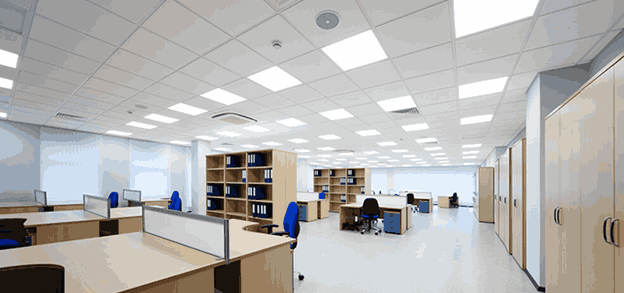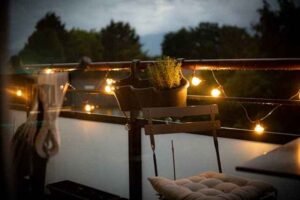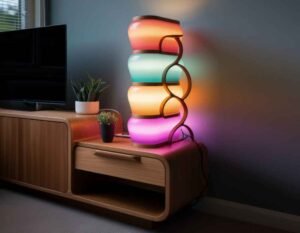When it comes to lighting up your home, office, or commercial space, flat panel LED lights are one of the smartest and most stylish choices you can make today. They’re sleek, modern, energy-efficient, and versatile enough to work just about anywhere—from your kitchen ceiling to a conference room or even a retail store.
But before you rush to buy one (or ten), let’s talk about what flat panel LED lights really are, how they work, and what you need to consider to make the right purchase.
What Are Flat Panel LED Lights, Anyway?
Flat panel LED lights are ultra-thin lighting fixtures that deliver bright, even illumination across a wide surface area. Instead of using bulbs like traditional lighting, they use light-emitting diodes (LEDs) that are spread across a panel to distribute light evenly.
They usually come in square or rectangular shapes and are designed to either mount flush into a ceiling (recessed) or hang down using suspension kits. You’ll commonly see them in:
- Offices
- Schools
- Hospitals
- Retail stores
- Home basements or garages
- Kitchens and laundry rooms
So why are they so popular? Let’s dive into the benefits.
Why Choose Flat Panel LEDs?
✅ 1. Energy Efficiency
Flat panel LED lights consume up to 70-80% less energy than traditional fluorescent or incandescent lights. That means lower electricity bills, which is great news whether you’re lighting a small home or a large commercial space.
✅ 2. Sleek & Modern Design
These panels are ultra-thin and fit flush with the ceiling, giving your space a clean, minimalist look. No more bulky fixtures or outdated tubes hanging around.
✅ 3. Bright & Even Illumination
One of the biggest advantages is uniform lighting. There are no dark spots or uneven brightness—just smooth, consistent light.
✅ 4. Long Lifespan
On average, a flat panel LED can last 50,000 hours or more. That’s nearly 6 years of continuous use! You won’t be climbing up ladders every few months to change bulbs.
✅ 5. Eco-Friendly
They’re free of mercury and harmful chemicals, and since they last longer, they reduce waste.
Types of Flat Panel LED Lights
Before you buy, you’ll want to know the different types available. Here’s a breakdown:
🔹 Edge-Lit Panels
- LEDs are placed around the edges of the panel
- Light is spread across the diffuser using a light guide plate
- Slimmer design
- Slightly less uniform lighting in larger panels
🔹 Back-Lit Panels
- LEDs are placed directly behind the diffuser
- Brighter and more uniform light
- Slightly thicker
- Better suited for spaces that need strong, even brightness
🔹 Tunable White Panels
- Adjustable color temperature (warm to cool)
- Great for dynamic lighting environments (e.g., offices, classrooms)
Key Features to Look For
Now that you know the types, here’s what else you need to keep in mind when shopping for flat panel LEDs:
💡 1. Size
Common sizes include:
- 2×2 feet (best for grid ceilings in small rooms or bathrooms)
- 2×4 feet (ideal for larger office spaces and basements)
Make sure the panel fits the layout of your ceiling, especially if you’re replacing older fluorescent fixtures.
💡 2. Wattage & Lumens
- Wattage tells you how much power the panel uses.
- Lumens tell you how bright it is.
Generally, a 40–50W flat panel LED produces about 4,000–5,000 lumens, which is bright enough for most spaces. Always choose based on your room’s size and lighting needs.
💡 3. Color Temperature
This affects the “feel” of the light:
- Warm white (2700K–3000K) – Cozy and yellowish, great for living rooms or bedrooms
- Neutral white (3500K–4000K) – Balanced and natural, great for offices and kitchens
- Cool white (5000K–6500K) – Bright and bluish, ideal for task-heavy environments
💡 4. Dimmability
If you want flexibility in your lighting, go for dimmable panels. Just make sure you have a compatible dimmer switch.
💡 5. Installation Type
- Recessed: Fits flush with a drop/suspended ceiling. Ideal for a modern, seamless look.
- Surface-Mounted: Mounted directly onto a ceiling surface. Best for homes without drop ceilings.
- Suspended: Hangs using cables. Great for industrial or loft-style spaces.
💡 6. CRI (Color Rendering Index)
This measures how accurately the light displays colors. Look for CRI above 80—the higher, the better.
Installation: What You Need to Know
Installing a flat panel LED can be pretty straightforward—especially with a drop ceiling—but there are a few things to keep in mind:
- Check wiring compatibility: Make sure the power source and voltage match your panel’s requirements.
- Use proper mounting kits: For surface or suspended installations, ensure you have the right brackets or cables.
- Hire a professional: If you’re not comfortable with electrical work, always call an electrician.
Where Can You Use Flat Panel LED Lights?
One of the coolest things about flat panel LEDs is how versatile they are. Here are some ideas:
🏠 At Home
- Kitchen ceiling
- Bathroom
- Basement workshop
- Home gym
- Garage
🏢 In Commercial Spaces
- Offices (reduces eye strain with consistent lighting)
- Hospitals (sanitary and glare-free)
- Retail stores (enhances product visibility)
- Classrooms and labs
🏭 In Industrial Settings
- Warehouses
- Manufacturing floors
- Storage units
Cost vs Savings: Are They Worth It?
Let’s talk money.
Sure, flat panel LEDs might cost more upfront than traditional fixtures. A quality 2×4 LED panel can cost between $40 and $100, depending on features. But they pay off quickly:
- Lower energy bills
- No bulb replacements
- Fewer maintenance headaches
- Long lifespan means long-term savings
Over time, you’re looking at hundreds (or even thousands) in savings—especially if you’re lighting a large area.
Common Questions (FAQ)
Q: Can I replace a fluorescent panel with an LED panel?
Yes! Most flat panel LEDs are designed to retrofit into existing ceiling grids where fluorescent lights used to be.
Q: Are flat panel LED lights safe?
Absolutely. They don’t emit UV radiation, don’t flicker (unless faulty), and they operate at cooler temperatures than traditional lights.
Q: Do I need a special switch for dimmable panels?
Yes, if your panel is dimmable, make sure to use a compatible LED dimmer switch.
Q: Can I use them outdoors?
Only if the panel is rated for outdoor or damp environments. Always check the IP rating.
Final Thoughts: Should You Buy One?
If you’re looking for a modern, cost-effective, and long-lasting lighting solution, flat panel LED lights are absolutely worth considering. Whether you’re remodeling your home, upgrading an office, or just want better lighting without the hassle of frequent maintenance, these lights check all the boxes.
Just remember to check:
- The right size and shape
- Brightness (lumens)
- Color temperature
- Installation method
- Dimmability
- CRI and energy ratings
When you shop smart, your lighting will not only look better but also perform better for years to come.
Ready to Light It Up?
Start by evaluating your space and lighting needs. Then compare panels based on the features we discussed. You’ll be surprised how much difference a simple lighting upgrade can make.
If you need help choosing the right panel, feel free to drop a comment or reach out—we’d love to help you brighten things up!
For more, visit our website Home Threads







